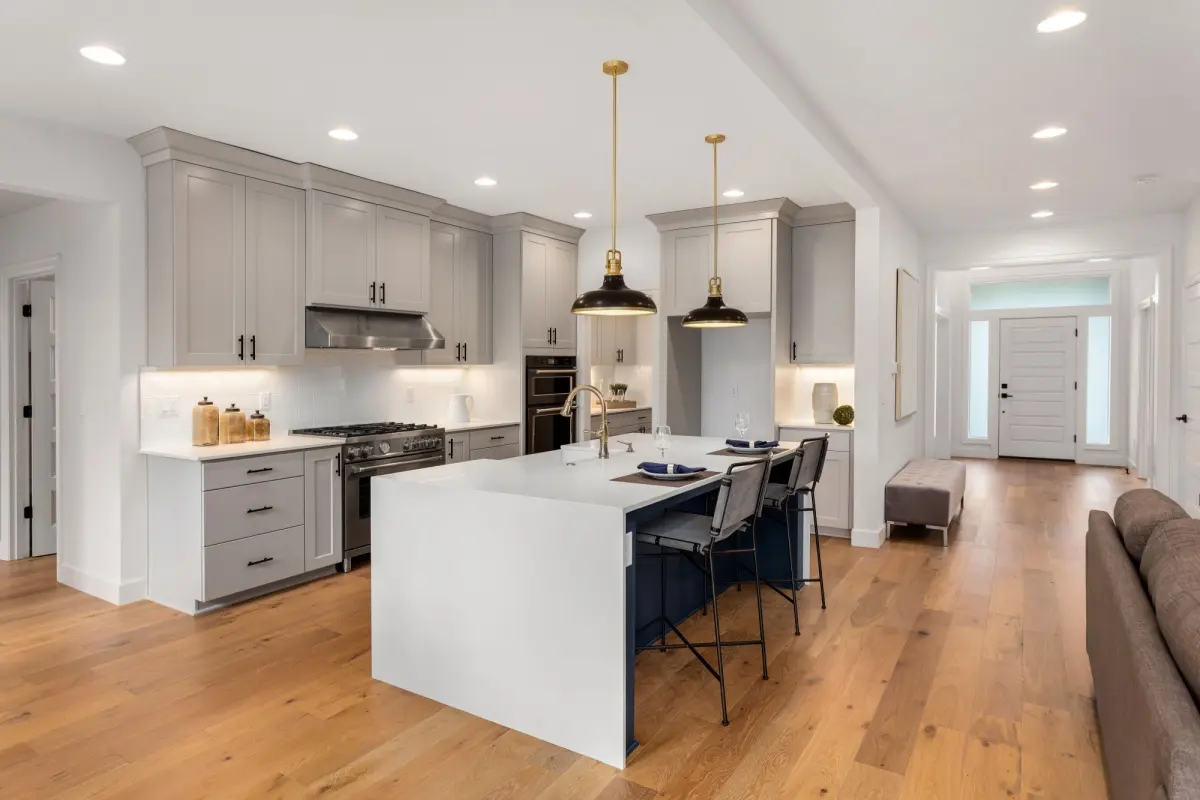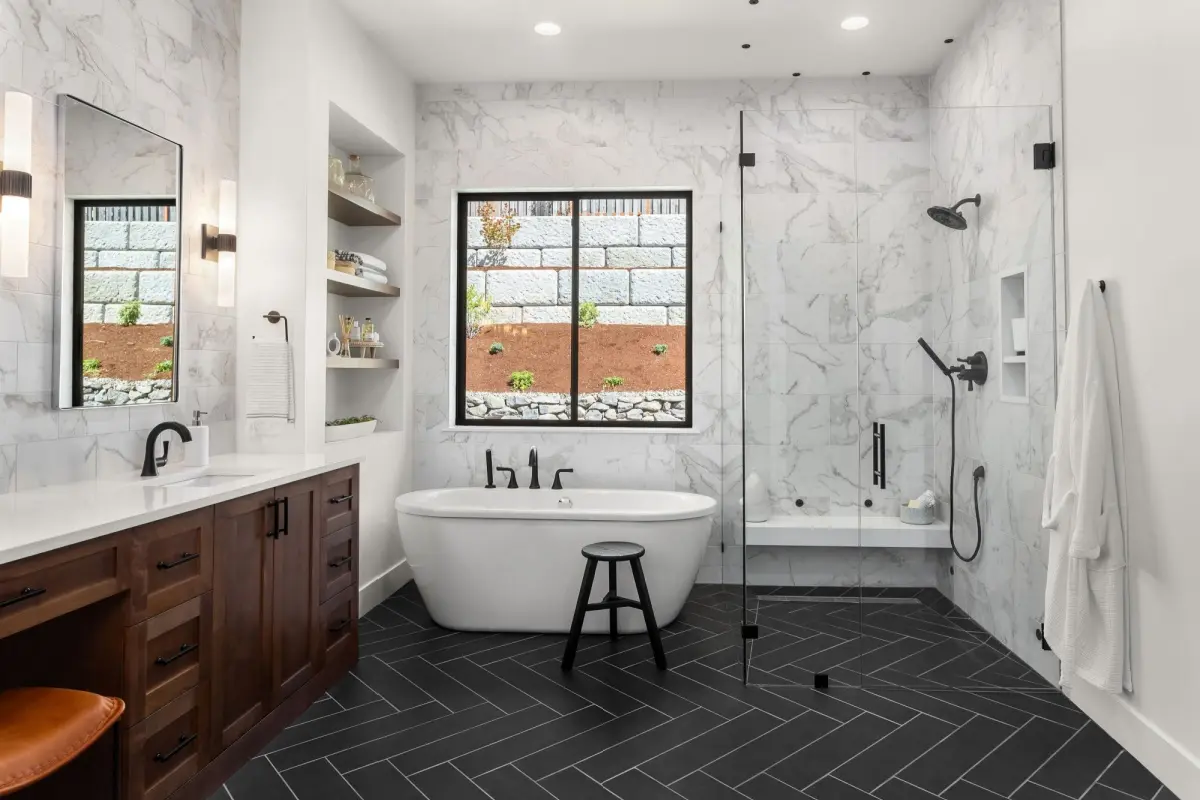Home renovation spending and the number of homeowners applying for building permits are declining. Are more homeowners leaning into DIY work, or are they just remodeling without a permit?
Many homeowners are keeping their purse strings a little tighter these days, so it’s understandable to want to find ways to save as much as possible on your home improvement projects. You can do many projects without getting a permit, but bypassing legally required licenses in the name of time and money could lead to severe consequences.

Let’s examine why remodeling without a permit could be more of a hassle than it’s worth and what projects homeowners can do without a permit.
Again, not all renovation projects will require a permit. However, starting any renovations without permits when they are needed can lead to penalties ranging from incurring hefty fines to complicating the sale of your home. Here are six significant consequences of building without a permit:
First and foremost, housing departments enforce permitting requirements and code compliance to ensure the safety of the structures being built (and the people living inside them). This is also why permitting officers may conduct periodic inspections of the project. Poorly executed electrical or plumbing work, for example, is dangerous and expensive, so it’s often worth the extra effort to ensure quality work from the start.
While the homeowner ultimately has the responsibility to obtain necessary permits, a reputable contractor can do so for you prior to starting a project.
Local building departments can impose one-time fees or fines if they discover unpermitted work. The jurisdiction can often fine both the contractor and the homeowner. The fines are calculated based on the project’s scope, the extent of your violation, and the rules defined by your local department.
Generally, the fines for not getting a permit exceed the cost of obtaining one. For example, permitting fines in Salem, Oregon, can reach $2,000 per day.
Building departments will require you to code any work done without a permit by addressing safety and structural concerns. If the inspecting officer deems the work unsafe, they may order you to demolish any work you’ve done or hire a professional to fix it and file the proper paperwork retroactively.
Note that your project could require several permits. For example, a bathroom remodel may require both plumbing and building permits.
Most standard homeowners insurance policies won’t pay to bring your home up to code. So, if you’re asked to bring an unpermitted project up to code, you’ll typically have to foot the cost, even if you didn’t make the repairs.
Moreover, insurance companies may deny claims in case of damage, leaving you fully financially responsible for repairs or liabilities. You may also be involved in a pricey lawsuit if the health and safety of another individual are concerned.
Unpermitted work can also make home appraisals more difficult. If you refinance your mortgage, the appraiser will typically exclude any room additions from the square footage stated in your listings that don’t meet the code.
Having paperwork that doesn’t accurately reflect the size of your home will make it harder to get a loan equal to your home’s volume, and some banks will disqualify you from receiving the loan if you remodel without a permit.
While most home projects increase the value of your home, unpermitted upgrades could have the opposite effect. You and your real estate agent must disclose any renovations to the buyer, permitted or otherwise. You may be required to obtain the proper licensing retroactively before selling your home or inform the buyer of their responsibility to do so.
Such stipulations could worry potential buyers that the work has been done incorrectly, or worse, render them liable to the ramifications later on.
All cities and counties have different permitting requirements. Still, most local municipal government offices will want you to snag a permit for public and personal safety projects, plumbing, electrical, and natural gas.
Any change that alters the footprint of your home will likely require a permit. Some municipalities require a license if the project cost exceeds a certain amount, like $10,000.
| Usually or Likely Required | May Not Be Required |
| Structural changes or new construction work | Painting or wallpapering interiors and exteriors |
| Installing new systems, such as HVAC, electrical, or plumbing | Refitting minor electrical or plumbing (without moving or adding new services) |
| Adding supporting walls or taking down load-bearing walls | Updating existing kitchens or bathrooms |
| Sewer-related projects | Replacing countertops and appliances (without touching gas lines) |
| Building an addition or garage | Building small sheds |
| Changing the roofline | Upgrading existing roof material |
| Demoing walls or changing the interior layout | Replacing doors and windows |
The best way to determine if you need a permit is to call your local permitting office. Explain your remodeling plans in detail, including who will complete the work, and a permitting officer should be able to confirm whether you need to apply for a permit.
Tip: Every municipality has rules on what work requires a permit. Always check with your local planning or building department before starting a renovation.
Not all home upgrades require paperwork to begin a renovation or remodel. While regulations differ from city to city — sometimes town to town — there are several instances where you can remodel without permits:
Interior cosmetic changes
Minor electrical work (without significant alterations to the system)
Basic plumbing work (without substantial alterations to the system)
Exterior upgrades
On the other hand, there is a good chance you’ll need a permit for projects that represent major changes to your home and property. This includes constructions such as:
Tip: Allocate enough time for inspections during the renovation process. In addition to permits, particularly complex projects may require multiple inspections to ensure your remodel is up to code.
If you’re ever tempted to cut costs on permits during your home renovation project, please think twice. The ramifications of remodeling without a permit often outweigh the time you’d save applying and filing the paperwork. When in doubt, consult with a reputable contract and refer to your local building authorities to understand the specific permit requirements for your project.
The easiest way to avoid building permits is to limit home upgrades to minor repairs and cosmetic updating, such as painting, replacing fixtures, or installing flooring. These are usually projects you can do without applying for a permit. Check with your local building authorities to confirm which projects are compliant and, therefore, safe to consider permit-free.
Every building department has a different process for how to get a permit after work is done. If you’ve finished work without necessary permits or discover unpermitted construction when buying or selling your home, you’ll likely undergo a process called “retroactive permitting.”

To apply for a retroactive license, contact your local building department and provide them with detailed building plans. You’ll have to file the required paperwork and pay any associated fees. Depending on local requirements, you may need to hire a reputable contractor to bring the space up to code before having the municipality inspect the home and sign off on the work.
City inspectors may notice construction activity following a complaint or report from neighbors, or it may surface during the sale of your home. They may also discover unpermitted work during a routine property reassessment and flag any discrepancies.
Most building permits are public records, and you can look up permits on the house by searching your municipality’s online portal. If you’re unsure whether projects in your home have the proper permits, go to your building department’s website to verify projects and permits. Enter your address, parcel number, street name, or contractor license to create a list.